MHPE & CEFP Testimonials
The trainees and graduates from our CHES Educational Programs are innovative thinkers and natural leaders, with a vision for promoting health through education scholarship. Our alumni stand out as health education leaders across the province, and across the country.
If you are interested in understanding more about the programs CHES offers, here is a collection of testimonials from CHES Alumni who are actively or formerly a part of the Clinical Educator Fellowship Program and/or the Master’s in Health Professions Education Canada Program (MHPE-Canada).
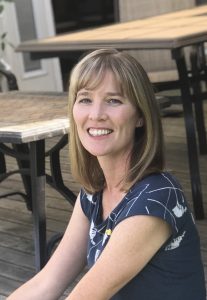 |
Diana Fort
Current Fellow and MHPE-Canada Student
Assistant Dean, Southern Medical Program
Portfolio Site Lead, Southern Medical Program
Clinical Assistant Professor, UBC Department of Emergency Medicine
I have absolutely loved being a Clinical Educator Fellow. The best thing about the program is being immediately welcomed into the CHES community, which is made up a of diverse group of creative, knowledgeable and passionate educators who go out of their way to support and guide you through your fellowship and MHPE. Being a CHES fellow has allowed me to greatly expand my teaching activities while also learning to be a more effective teacher. Through our weekly academic half days, I have also learned about the foundations of Health Professions Education scholarship including how to read and critically appraise the HPE literature and how to craft a research question, in addition to exploring new research methodologies and theoretical frameworks. I have felt extremely well supported in discovering and expanding my research interests. My experience with CHES has also been indispensable in achieving my leadership goals within the medical school. I feel extremely grateful to be a part of this program and this exceptional community. |
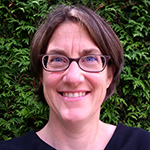 |
Teresa Green
MHPE-Canada Alumni (2019 Graduate)
Clinical Assistant Professor, Department of Occupational Science and Occupational Therapy, UBC
Regional Practice Leader, Occupational Therapy, Vancouver Coastal Health
The MHPE degree program was a wonderful experience; I gained knowledge and skills that I could apply immediately to my work every day, connections to a network of educators and education researchers and friendships that will last a lifetime. I originally chose the MHPE program because of the combination of flexibility that comes with a primarily online program, as well as the support that comes from being embedded into a local cohort based at CHES. This mixture worked well to keep me engaged and motivated even as I worked full time. Because I was working while completing the program, I appreciated how for many course assignments I was able to choose projects from my own work. For example, for a project on instructional design, I applied the theory I was learning to an education program that I was tasked with improving. My work benefitted not only from the structured review of the course design, but also from the written feedback I received from a fellow student and the instructor.I especially valued how the program was structured to include a research skills component in each unit, so that as I completed each unit, I gained the skills to complete the next step in my research project.I am grateful to CHES for creating a welcoming and supportive community where I can continue to learn and share my interests even after my degree is finished. |
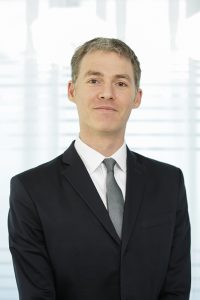 |
Brett Schrewe
CEFP Alumni (Graduated 2012)
Clinical Assistant Professor, Department of Pediatrics
PhD Candidate, Department of Educational Studies
Pierre Elliott Trudeau Foundation 2017 Scholar
The University of British Columbia
I’ve been told that life is something that happens when you’re planning for other things. I didn’t expect to take a train home for the holidays from Montréal, and I certainly didn’t expect that ViaRail’s WiFi service would actually work. But there I was in seat 6D or something like that, three hours in to the trip, a senior pediatric resident unsure of what I should do next with my life. Two muffins and three coffees later, somewhere around Port Hope I think, I happened to come across the website of a UBC medical anthropologist who studied the intersections between language use, culture, medical practice, and education. I wrote Bill a quick e-mail; he wrote back in about 20 minutes. He explained that he thought my idea to study how the type of language used shapes professional identity in medical students in certain ways, rather than others, was a good one and he’d be keen to supervise. But he also said with my non-anthro background, getting into an MA or PhD program in his department was probably a non-starter. Rather, he said: “you should look into this other program.” Long story short, it was the clinical educator fellowship at CHES. Eight months later, I was on a plane to Vancouver, wondering if I had made the right choice.
That was 10 years ago. The answer is a resounding yes. I will tell anyone and everyone I meet that CHES has given me the most important thing anyone can give anyone: a sense of home and belonging, a place where you are always welcome and where hospitality and trust are always on offer. Learner and fellow-centred doesn’t even begin to adequately describe what Joanna, Glenn, Kevin, Ian, Michelle, Dan, Gary, Ravi, Rose, and so many others have built. And because of this singular support, I have an MA in interdisciplinary studies, I have a clinical educator fellowship, and I felt confident enough to embark upon doctoral studies and became a Trudeau Scholar in the process. I have somehow become a member of the growing health professions education community in Canada and an interdisciplinary humanities researcher, while also continuing to practice as a consultant pediatrician. I get to partner with a slew of great colleagues here in BC, across the country, and internationally on projects. In short, I have a professional life I never would have dreamed of when I sent an e-mail from that train. So, thanks ViaRail!
If I owe Montréal colleagues like Richard Gosselin for my pediatric career and Saleem Razack and Mary Maguire for the sense that there were indeed ways to combine pediatrics and the social sciences and humanities, I am indebted to CHES for taking a chance on me and helping me connect these two worlds together in ways that have made me feel like I am where I should be – both professionally and personally. I’ll never be able to pay it back, so the best I can hopefully do is pay it forward and give to others what CHES has given to me. |
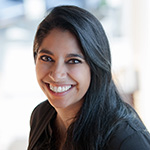 |
Farhana Shariff
MHPE-Canada Alumni (2019 Graduate)
CEFP Alumni (2019 Graduate)
MDCM, MSc (HPE), FRCSC
Toronto Surgical Oncology Fellow, Department of General Surgery
University of Toronto Chief Fellow, Surgical Oncology, University of Toronto
Fellowship Representative, General Surgery Fellowship Council, University of Toronto
The CHES fellowship was a huge turning point in my development as a surgeon-educator and as a scholar. I will forever be grateful for the incredible guidance and support I received there as I worked to figure out how to explore issues of importance in my own field in a meaningful way, and to integrate educational research into a busy clinical practice. Even from across the country now, I feel like part of the CHES community, and I am so lucky to get to call these amazing individuals mentors, collaborators, and friends. |
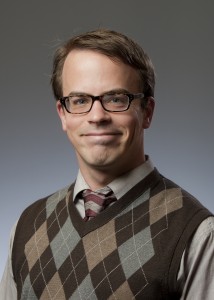 |
Stéphane Voyer
CEFP Alumni (2011 Graduate)
Clinical Assistant Professor, General Internal Medicine, St. Paul’s Hospital
Competence Committee Chair, GIM Fellowship Program, Department of Medicine, UBC
During my two years at CHES, I spent time with internationally recognized leaders in medical education. I learned how to think more clearly, how to teach more effectively, and I developed the skills to be a leader within my own group.
I was a Fellowship Program Director from 2014 to 2020. My time at CHES put me in a position to take that job, and I’m proud of the way the program grew and evolved during my time as PD. |




